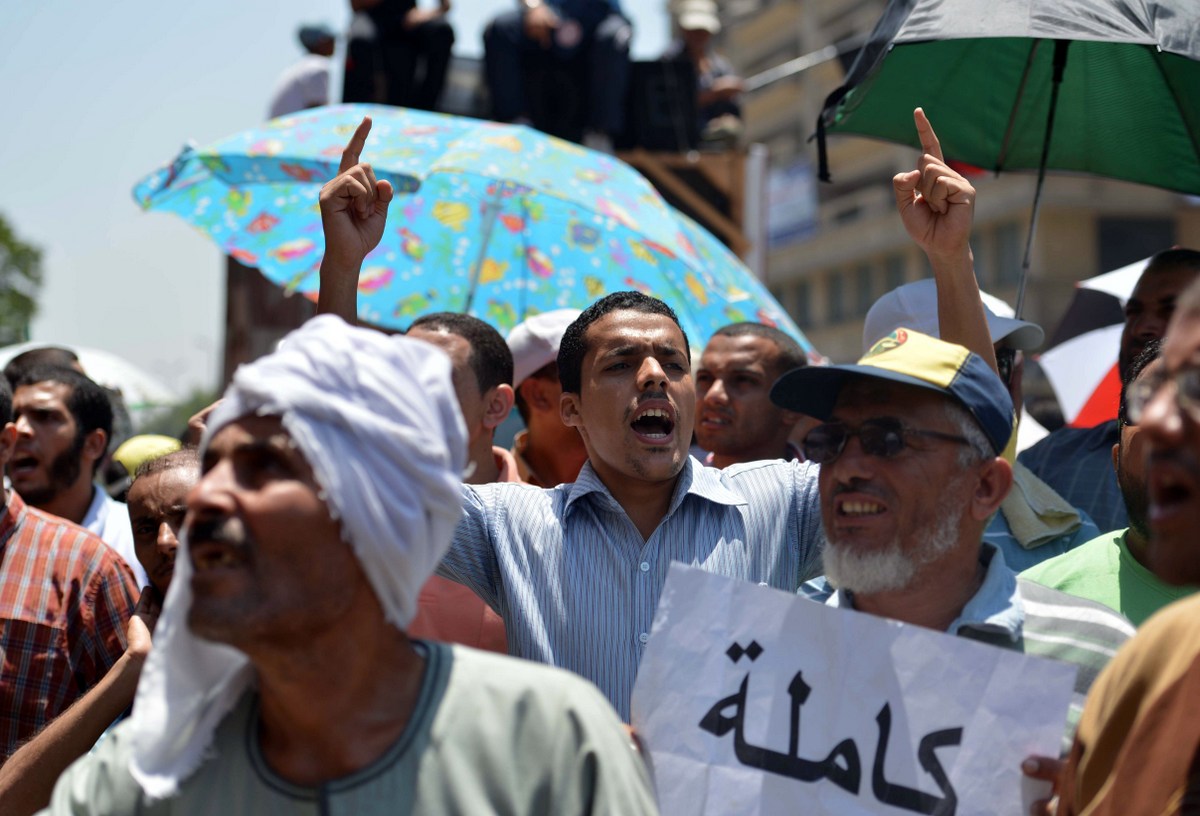CAIRO: By the beginning of 2008, things were at a tipping point in the construction market. In the cement sector, many companies were pulling in record profits while high demand – which had begun to send domestic cement prices skyward – took their toll on the consumer.
Cement prices rang in 2007 at around LE 300 before reaching the year’s high of LE 410-420.
The government’s attempts to mitigate rising prices met little success. In February 2007, an export tariff of LE 65 was placed on each ton of cement as part of an effort to control prices at home.
Increasingly frustrated by its inability to control prices, the Ministry of Trade and Industry upped the tariff to LE 85 in August of last year.
As prices continued to soar, the government implemented an export ban in March 2008, aimed at boosting supply at home during a time in which demand was expected to rise dramatically.
And for the first time, the government’s intervention began to show real results. Prices currently sit around LE 485, having dropped from their high of LE 520-550 earlier this year.
It is against this turbulent backdrop that Suez Cement Company is enjoying one of its most profitable – and most rollercoaster – years to date.
Amid uncertainty in the industry, a shaky stock price, and a legal imbroglio, Suez posted record profits last month, announcing first half 2008 profits of LE 768.99 million.
This figure represented a robust 28.8 percent increase over its LE 597.04 million profit over the previous year.
Not all cement companies had been able to post such robust earnings. Tora Cement, for example posted profits 19 percent lower for the first half of 2008 than for the same period a year earlier.
Suez Cement is a subsidiary of Italcementi. First incorporated in 1977 with plants in Kattameya and Suez, the company now has a market cap of $1.2 billion.
Now the majority shareholder of Torah Cement, Suez Cement is considered one of the largest cement manufacturers in Egypt. The company produces around 12 million tons annually with a market share of more than 30 percent in gray cement and more than 50 percent in white cement. The company s products include Portland cement, seawater cement, and slag.
Suez Cement was listed in the Stock market in 1995 with a minority stake being traded while the remaining lie with Ciment Francais and the Egyptian government.
Despite the pressures against exporting, Suez continued to grow through the first half of 2008, introducing in February a new product that it hoped would solidify its status as a market leader.
Its introduction of Oasis Cement was a major development because of the chemical improvements it offered over its more standard Portland cement.
Despite record growth and profits, the Suez stock price has stumbled over the past six months, losing roughly 40 percent of its value over that period. Suez seems to be in lockstep with other cement companies who have also seen their stock prices tumble in recent months.
Suez’s stock price closed out August at around LE 36, down from LE 59 in February -before the company began to find itself in legal hot water.
After an extensive 14-month investigation of the cement sector, 20 cement executives were found guilty of violating the anti-trust laws in Egypt.
Suez executives were among those accused.
The law in question was implemented in 2005 as part of an effort to curb price fixing, and authorities charged that executives from Suez, Misr Beni Suef, Misr Qena, Al-Ameriyah Cement, and Torah Cement had colluded in violation of the law.
The investigation was conducted by the Ministry of Trade and Industry’s Egyptian Competition Authority (ECA).
The indictment alleged that the companies had conspired to fix prices on Portland cement and to split the market among them.
On August 25, after six months of trial, the court found the cement companies guilty and fined each executive LE 10 million.
At the time, Omar Mohanna, chairman of Suez Cement, told Daily News Egypt, “We have full confidence in the Egyptian legal system, and the appeal will prove that we are innocent and that there is no [grounds for the] case,
For all the stock market and legal turmoil that has surrounded Suez Cement over the past year, high cement prices as a result of a heavy appetite for construction has kept the company booming and benefiting from record profits.
When the export ban ends, likely in October of this year, Suez will have further opportunities to expand its business.
To read the other stories in our bi-monthly special focus on Egypt s real estate and construction sectors, click here:http://thedailynewsegypt.com/article.aspx?ArticleID=16385http://thedailynewsegypt.com/article.aspx?ArticleID=16384http://thedailynewsegypt.com/article.aspx?ArticleID=16383

